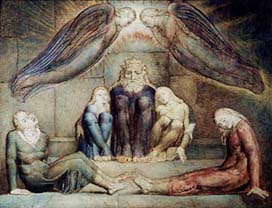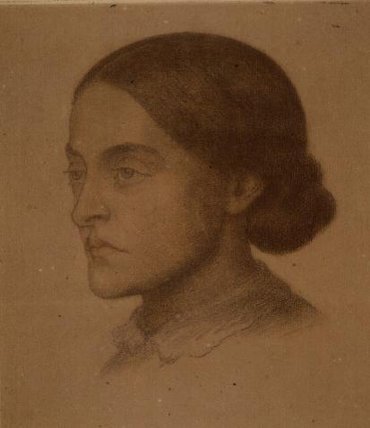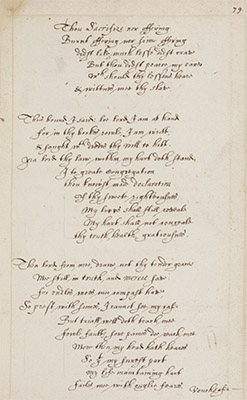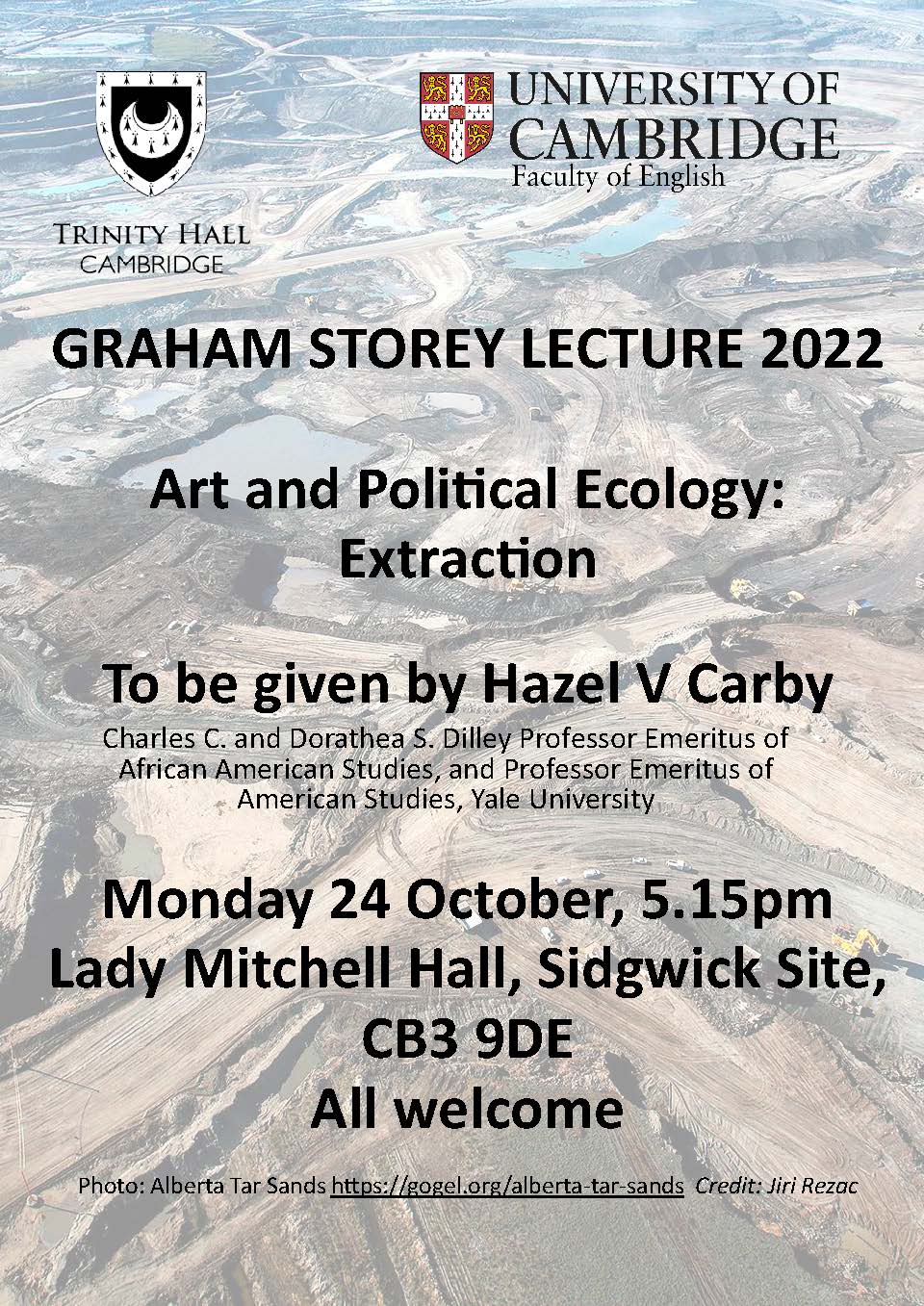The MPhil in English Studies
Study
- Course structure
- Research Frameworks
- Specialist seminars
- Research Training
- Textual and Related Studies
- Dissertation
- Specialisation
- Assessment
There are four taught elements to the MPhil in English Studies. In addition, our students work on their dissertations for the full length of the course and also participate in some of the Faculty’s wide array of research seminars.
Research Frameworks seminars are collaboratively taught, typically by a pair of lecturers each term, and are cross-period; Specialist seminars are individually taught and have a specialist focus: both are research-led. The Research Training course provides students with discipline-specific academic skills. The Textual and Related Studies courses provide bibliographical, manuscript and palaeographical training for students wishing to specialise in Medieval or Renaissance literature.
In Michaelmas (autumn) term students are typically required to take one Research Frameworks seminar, one Specialist seminar, and the Research Training course. In Lent (spring) term students take one Research Frameworks seminar, two Specialist seminars, and the Research Training course. In Easter (summer) term there is some further Research Training but students otherwise focus on the dissertation.
| Michaelmas Term | Lent Term | Easter Term | |||||||
|---|---|---|---|---|---|---|---|---|---|
| Research Framework | Specialist Seminar | Research Training Lectures | Dissertation Supervising | Research Framework | Specialist Seminar One | Specialist Seminar Two | Research Training Lectures | Dissertation Supervision | Dissertation Supervising |
| Coursework Essay One | Short Written Exercise | Coursework Essay Two (derived from one or other of these courses) |
Dissertation | ||||||
Students specialising in Medieval or Renaissance literature take a slightly different route in Michaelmas, on which see the information about the Textual and Related Studies courses given below.
Full course details and reading lists are provided to successful applicants shortly prior to admission.

William Blake, Ugolino and his Sons,
Fitzwilliam Museum, Cambridge.
Research Frameworks seminars available from October 2023 are likely to include:
- Poetry and Poetics
- Politics and Culture: Capitalism, Ecology, Decolonisation
- Material Texts
- Literature and Philosophy
- Narrative and Its Mediations
- Bodies
For indicative information about seminar content, see here.
Each seminar runs six, two-hour classes in Michaelmas, and six in Lent. Each course in each term is free-standing; Lent courses do not presuppose prior acquaintance with the Michaelmas course of the same name. Subject to availability, students can therefore request to follow the same seminar across both terms; or they can choose a different seminar each term. Research Frameworks seminars are intensively taught with set programmes of reading and may involve student presentations and other kinds of participatory activity. However, they do not involve any coursework. Sign-up for these seminars is in late August, when students are asked to list an order of preference.
Alongside Research Frameworks seminars students follow Specialist seminars in a selection of their areas of interest. Characteristically, these seminars range widely in topic, for example from Middle-English contemplation to contemporary British and Irish poety, or from the invention of literary critical practice to writers’ notebooks. The Faculty has produced an indicative list of Specialist seminars as an example of options that may be available. Information about a given year’s seminar provision, seminar content, and timetabling is provided to offer-holders prior to admission, in August, when students are asked to list an order of preference.

Dante Gabriel Rossetti’s portrait of Christina Rossetti,
Fitzwilliam Museum.
Each Specialist seminar comprises five, two-hour classes per term. Students opt for one Specialist seminar in Michaelmas term and two in Lent. Coursework essays are attached to Specialist seminars as described below in the section on Assessment.
Students may if they wish substitute one Specialist seminar with an equivalent course from another Faculty. Borrowed courses are subject to availability in the host MPhil and to timetabling constraints. Students may have to satisfy specific requirements set by the host MPhil (such as a language qualification or prior undergraduate training in the field).
The Research Training course provides training essential to postgraduate researchers in the humanities. It is taught by means of lectures and of associated workshops based in our libraries.
The Research Training course is compulsory unless students are following a Textual and Related Studies course, in which case it is available but optional. Work towards this course is not formally assessed.
Textual and Related Studies Courses
The Textual and Related Studies courses run in Michaelmas term. There is one for those students wishing to specialise in Medieval literature and another for those specialising in Renaissance literature.
Students intending to opt for a Textual and Related Studies course should indicate this on their application form when applying for the MPhil.
It is possible for students to write the majority of their dissertation on a Medieval or Renaissance topic without choosing to take the associated Textual and Related Studies course.
Textual and Related Studies: Medieval Literature - More information about Medieval studies at Cambridge

Chaucer's The Monk's Tale from
The Canterbury Tales,
Cambridge University Library, ms. Gg.4.27.
This course is intended primarily to give students a practical introduction to the study of English manuscripts in the period 1100-1500. Students work with original manuscripts from Cambridge collections, selected to illustrate various aspects of the subject. The course provides the foundation for the knowledge and skills necessary to read, transcribe and study medieval texts in their manuscript form. It provides the technical, practical and intellectual expertise necessary in the growing field of manuscript studies and medieval handwritten culture, covering a wide range of topics, including writing, cataloguing and circulation of medieval books and texts.
For those who select it, the Medieval Textual and Related Studies course runs in the place of Research Frameworks seminars in Michaelmas term in order to keep the workload manageable. Students following the Medieval Textual and Related Studies course also take one Specialist seminar in Michaelmas. In addition, they have the option of attending the Research Training course as well. (In Lent, when Textual and Related Studies courses do not operate, all students take one Research Frameworks seminar, two Specialist seminars, and the Research Training course.)
Students who take the Medieval TRS course can choose to be assessed on it instead of submitting a Michaelmas term coursework essay based on a Specialist seminar. The knowledge and skills taught during the course are assessed by means of an exercise in Textual and Related Studies. For this exercise students are required to choose, in consultation with the course convenors, a manuscript from a Cambridge library either (i) in Middle English or (ii) in another language but made or used in England between c.1100 - c.1550. They then write a full codicological description of the manuscript, and a diplomatic transcription of a short passage from it. Should students wish, a short extract from these projects can be published as a blog on The Manuscripts Lab at the end of the examination period.
Textual and Related Studies: Renaissance Literature - More information about Renaissance studies at Cambridge.

From the Sidney Psalms by Philip and
Mary Sidney, Trinity College Library,
Cambridge, ms. R.3.16.
The Renaissance Textual and Related Studies course equips students with the skills and understanding needed to study early modern manuscript material and to conduct research using material printed in the period 1500-1700. The course is, where possible, ‘hands-on’, making use of the University Library’s collections. Its sessions cover both Renaissance palaeography and textual studies. The palaeography sessions teach students to read the scripts in which Renaissance literature was written. They introduce techniques for analysing manuscripts and for making deductions of literary consequence from handwritten material. The textual studies sessions advise students how to locate and gain access to manuscripts and early modern printed material, and how to understand the contexts of their production; provide instruction in how early modern printed books were made, and how to describe and analyse them using the principles of descriptive and textual bibliography; and equip students to explore the uses made of early modern printed books, including features such as binding and annotation. Overall, the course enables literary study that is informed by a clear understanding of the particularities of the production, transmission, and editing of early modern texts.
The Renaissance Textual and Related Studies course is shorter than the Medieval one and those who take it in Michaelmas term also therefore take Research Frameworks and Specialist seminars in common with other students. They have the option of attending the Research Training course too, if they wish.
The Palaeography component of the Renaissance Textual and Related Studies course is assessed by means of a pass/fail test of students’ skills.
Dissertations are long-form research essays prepared independently by students under the guidance of a Faculty supervisor. Students meet supervisors one-to-one throughout the MPhil, and with particular intensity in Easter (summer) term which is devoted to completing the dissertation.
Students are asked to submit a dissertation title and proposed project outline as part of the application process (the research proposal).
Providing we can supervise and examine it, we will consider any proposal for a dissertation project falling within the general field of English Studies very broadly defined, from 1066 to the present day.
Please note that decisions about admissions and supervision arrangements are made by Faculty committees, and not by prospective dissertation supervisors. However, we always welcome enquiries about our course.
Our MPhil programme is wide-ranging and will sometimes challenge you to tackle unfamiliar material unrelated to your dissertation topic; but having said that, the course also offers ample scope for focused study and specialisation. Multiple pathways can be taken through the MPhil, shaped by students’ interests.
For example, a student wishing to write their dissertation on a contemporary subject such as contemporary elegy might aim to match a Research Frameworks seminar on ‘Poetry and Poetics’ with Specialist seminars such as ‘Cultures of the Anthropocene’, ‘Emily Dickinson and the Archive’, and ‘Renaissance Lyric’.
A student wishing to write their dissertation about John Skelton and to specialise in medieval literature might opt, in Michaelmas, for the Medieval Textual and Related Studies course and a Specialist seminar such as ‘East Anglia: Literature, Religion, Culture, and the Wider World’, and, in Lent, might request to take a Research Frameworks seminar such as ‘Poetry and Poetics’ and Specialist seminars such as ‘Medieval Literature and Visual Culture’ and ‘Thinking with Classical Antiquity’.
A student wishing to specialise in literature of the long eighteenth century might prefer a Specialist seminar such as ‘Changeable Forms: Eighteenth-Century Embodiment’ together with the ‘Bodies, Performance, Gender’ Research Frameworks seminar (to support their wider understanding of the history of gender), and might then nominate to take courses such as ‘Inventing Criticism, 1660-1840’ and (perhaps by way of chronological background) ‘The Exuvial Renaissance: Distributing Personhood in Early Modern Texts’.
Equally, a student whose interests are more thematic or conceptual than period-specific – someone who is, for example, interested in the relationship between literature and philosophy – might aim to take a Research Frameworks seminar in that subject and to combine this with Specialist seminars such as ‘Now, Then: Present Time and Action in a long Romantic Age', ‘Phantom Tables: Philosophy and Literature (1890-present)’, and ‘Literature and Ultimate Questions’.
All courses are subject to availability and demand, but extensive efforts are made to satisfy students’ preferences and to tailor seminar allocations, so far as possible, to support individuals’ dissertation projects.
Students’ progress throughout the MPhil is supported by regular meetings with their dissertation supervisor, who reads and gives feedback on coursework essays as well as the short written exercise and dissertation.
Examined elements are as follows:
(i) Short Written Exercise
A short essay submitted in Michaelmas term on a topic directly related to the dissertation. Assessed as a pass/resubmission by the supervisor. It does not contribute to the overall mark for the MPhil.
(ii) Coursework Submissions
Two 5,000-word essays related to work pursued in the Specialist seminars, one submitted after Michaelmas term and the other after Lent term. (Those taking the Medieval TRS course may choose to substitute the Michaelmas coursework essay with an exercise in Textual and Related Studies if they so wish.)
Topics are chosen independently by students in consultation with seminar convenors and dissertation supervisors. The lower of the two coursework marks achieved is weighted as contributing 20% towards the student’s overall mark for the degree; the higher-scoring coursework mark contributes 30% towards the overall mark.
(iii) Dissertation
An essay of between 12,000 and 15,000 words, submitted at the end of Easter term. Worth 50% of the overall mark for the degree.

